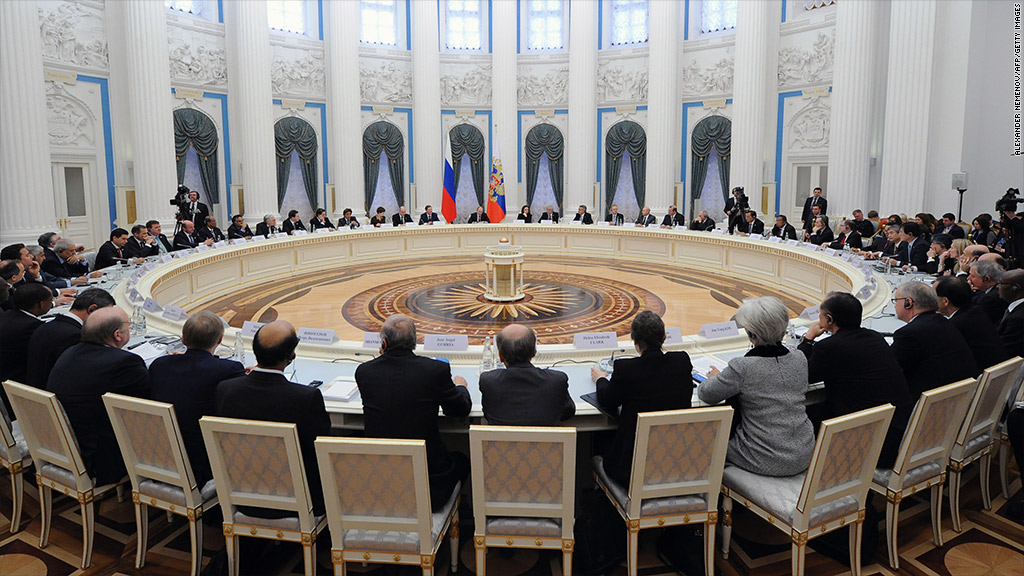
Amid concerns of a global currency war, the world's biggest economies pledged on Saturday they would not devalue their money to lift their own fortunes at the expense of the global recovery.
Finance ministers and central bankers from the G20, which brings together the 19 richest nations and the European Union, ended a two-day meeting in Moscow.
In a joint statement, the countries committed to focus monetary policy on boosting economic growth and refrain from actions that could trigger a beggar-thy-neighbor round of currency devaluations.
"We will not target our exchange rates for competitive purposes, will resist all forms of protectionism and keep our markets open," the G20's statement said.
In a currency war, nations manipulate policy levers to drive down the value of their money compared to others, thus boosting their own exports but hurting their trading partners.
Currency markets have gyrated in recent months due to widening gaps between the policies of the world's major central banks as they seek to revive growth and, in some cases, begin to consider how to withdraw emergency funding that has kept banks and economies afloat since the financial crisis of 2008.
Related: Banks tell G20 to act to avert currency war
Before the G20 meeting, Japan was singled out for criticism by some policymakers for apparently targeting a lower exchange rate as part of a range of fiscal and monetary measures aimed at ending years of deflation and stagnation. The yen has fallen rapidly against the dollar since last fall.
The euro has also rallied to multi-month highs, threatening to undo some of the recent painful advances in competitiveness that are vital if the eurozone is to recover.
The G20 accounts for some 90% of global output and 80% of international trade.

The group also sought to present a united front on the need for governments to reduce budget deficits, but the statement did little more than paper over the cracks between Europe -- where a policy of austerity has left the region mired in recession -- and the United States, which is prepared to allow borrowing to remain higher until growth begins to make a serious dent in unemployment.


